
Every few weeks, I go with my grandfather to visit his best friend. We see each other every other week; sometimes he treats me to dinner at Taboun in Skokie, and other times I visit him at home. But my favorite visits take place at Irving's retirement home.
At 95 years old, my grandfather spends much of his time at home, except for the three or more times a week that he and my grandmother go to visit Irving. My grandfather and Irving exchange newspapers in big piles that I swear neither of them reads. In fact, I'm pretty sure they've been passing the same papers back and forth for years. Sometimes they argue over politics, and other times they binge-watch Fox News. When I come along, it's not uncommon for me to ask Irving a question only to have my grandfather spout the answer for him (or vice-versa). Despite the fact that both of them seem to be losing their hearing, they never have trouble hearing what the other is saying.
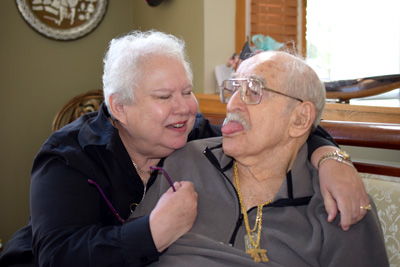
My grandfather and his wife, Judy, who I consider my grandmother.
But our conversation usually starts with my grandfather asking me, "Have you met a nice Jewish man yet?"
I laugh and tease back. "I thought you were going to find me someone, Grandpa," I say.
For the next 10 minutes, I absentmindedly leaf through the piles of ignored papers while my grandfather threatens to start taking out advertisements in local Jewish newspapers to find my
beshert. Then someone, usually my grandmother, gracefully manages to change the subject, and Irving and my grandfather retreat into their comfortable silence.
That's usually how it goes, except for this one time, when a few days after our visit, I got a text from from my grandmother, who -- at my grandfather's request -- sent an email to a friend asking if she knew of a potential match for me.
Apparently, my lack of a love life at the old age of 27 was such cause for concern that my grandfather felt he needed to intervene. I was torn between sighing and laughing.
To be fair, it's not like my attempts at dating on my own have produced stellar results. My close-knit group of friends makes it difficult to meet anyone new, and my attempts at online dating resulted in dates with men such as the one who was only using dating sites as a tool to find a job. I suppose I could use all the help I can get, so what was wrong with being set up by my grandfather?
In past generations, it was commonplace for relatives to introduce young Jews. And in a way, it felt more romantic in my mind to be able to say my future partner and I were matched by relatives instead of a computer.
So after the original humiliation waned, I was weirdly excited about the idea. I
wanted
to be set up by my grandfather.
Judaism speaks to me through traditions. I didn't grow up in a kosher home or go to synagogue every Shabbat, but the memories that revolve around Jewish customs -- throwing plastic bugs at the Passover Seder, or watching my 85-year-old grandmother become a bat mitzvah -- those are some of my favorites. Only recently did I become interested in learning more about the Jewish values and history behind the traditions I adore. I'm slowly starting to bring more of these practices into my daily life, so it felt fitting that I take a path to finding a life partner with more traditional roots.
I didn't hear back from my grandparents for a couple months, so I tried my hand at online dating again. After one eventful date with a gentleman who thought it appropriate to spew racist and obscene jokes the entire time, I pretty much resigned myself to being a spinster.
Then one day I received a call from an unknown number. I promptly let it go to voicemail, of course, but it turns it was from a nice young Jewish man, Alex, whose aunt was friends with my grandfather's friend, the one my grandmother had emailed. He was interested in meeting me.
I spent a good day trying to decide if I should call him back. After all, he must be a bit odd if he was willing to be set up on a blind date by a relative. Then again, so was I.
I boldly called Alex back (after spending a long time trying to plan out what I would say). Our phone conversation was quick and casual. He claimed to know of the best local sushi place, and intrigued by such a bold statement about one of my favorite foods, we made a date for later that week.
The afternoon of our date, I ran home from work and felt butterflies as I tried to decide what was appropriate to wear on a blind date set up by my grandfather. I decided on an outfit I felt comfortable and confident wearing. I felt good. Instead of my usual anxious nerves, I experienced more of a joyful nervous feeling.
Alex met me at the door to the restaurant. My first impression was relief; he was reasonably dressed, taller than me and fairly attractive with strong bone structure and dark hair, on top of which he kept a well-worn
kippah. It was actually refreshing to see -- it suggested a comfort and pride in his religion, which I appreciated. So far, so good, Grandpa.
Figuring out what sushi to order made for an easy conversation starter, and while I usually stick to the rolls that have ingredients I can pronounce, Alex was a bit more knowledgeable and able to recommend some nigiri to go with my standard roll.
The food arrived on long, elegant rectangular trays. In between bites of salmon-topped California rolls and tuna-covered spicy vegetable rolls, I learned that we both enjoyed books that have elements of fantasy and science-fiction. I also learned he was a creative professional, but when I asked his career and plans, he became a bit distant.
Alex said his family frowned upon his current profession. He explained that he went to an Orthodox Jewish day school growing up where he felt his talents in the arts were stifled, and where men were discouraged from creative pursuits.
I tried to interject, my hand fiddling idly with the paper used to wrap napkins, but he was talking so passionately that I felt compelled to listen. He then concluded that all this had disenchanted him with Jewish culture.
Having grown up in a community that valued and supported all art forms (and all genders in the arts), I couldn't imagine how difficult this must have been. I was upset for him.
Then Alex navigated his feelings into a conversation around non-traditional gender roles in comics and film, and halfway through my nigiri, I realized I hadn't spoken more than a word at a time since we had ordered. I tried to chip in during one of his lectures about a movie series, but I got maybe four words in before my comments were refuted and forgotten.
After some perfect mango mochi, Alex walked me to my car and we made tentative plans to meet again, but our date left me kind of stunned. I wish I had gotten the chance to really introduce myself.
For days I played it all over in my head. Did he really talk so much or was I just exaggerating it in my mind? I talk a lot when I'm nervous, so that's what he's doing? I should give him another chance.
But I didn't. Not because of his relentless chatter, but because our lives seemed to be in very different stages. Alex was looking into possible new careers; I was just settling into my job of choice. I was just starting to feel the attraction of Jewish culture and tradition; he was pushing it away.
Harder than making that decision, however, would be telling my grandpa that all of his hard work and effort didn't pay off. Standing in his kitchen as my grandmother made us matzah brie, I told him about the date he had set up. Halfway into the story, my grandpa interrupted. "Wait a while," he said. "I have to put my ears in -- I can't hear what we are talking about."
After I told the whole story again, he smiled. "Oh well, there are still hundreds of grandparents at the nursing home; I'm sure one of them has a good match for my granddaughter. I'll keep asking."
Perhaps my grandfather's scheme didn't pan out (at least not yet -- I did get a new email from my grandmother just last week … ), but he did help me realize something extremely important. I do want a future life-partner with whom I can explore our Jewish identities. And more than that, I want my
beshert
to be someone like, well, Irving -- someone I can sit in a room with, week after week, whether in conversation or in complete silence, and never tire of their company.
.jpg)
Danielle Borher is young Jewish woman in Chicago juggling a career in healthcare while exploring her Jewish identity. When not being set up on blind dates by her grandfather, she occupies her single-dom by performing on stage, taking long walks with her crazy dog, Kayla, and competing in Karate.
For more stories in the "Single, Jewish and Figuring It Out" series, visit oychicago.com/single.
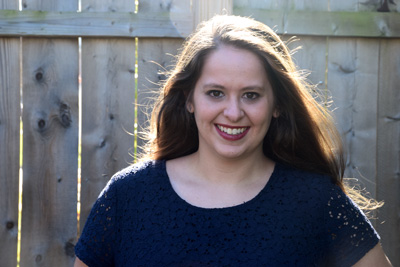
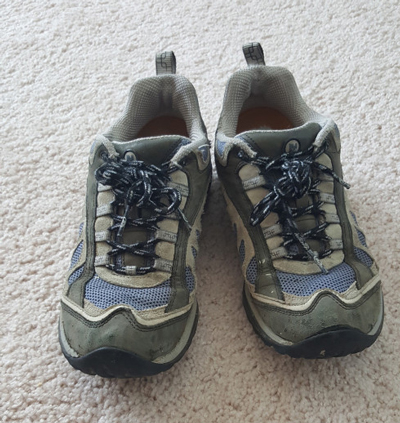
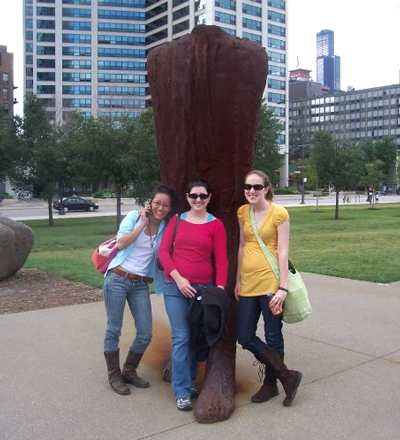
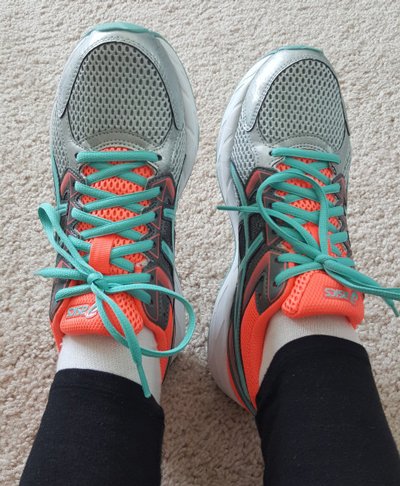


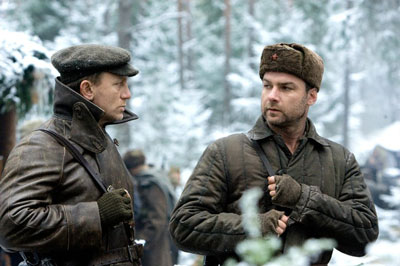
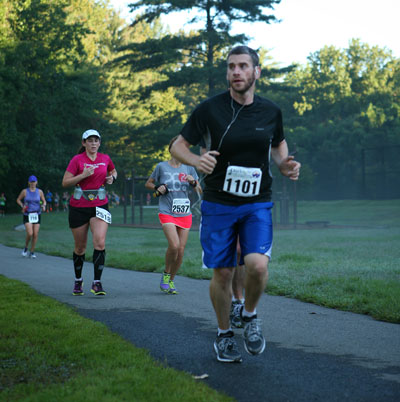
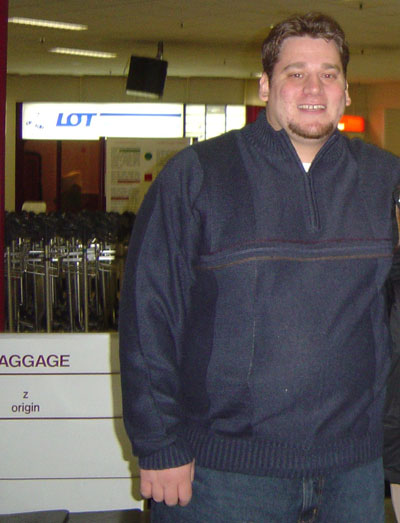


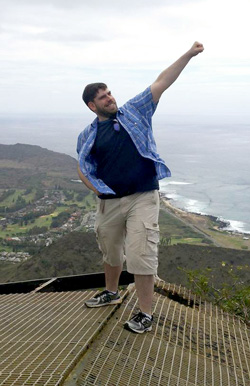
.jpg)
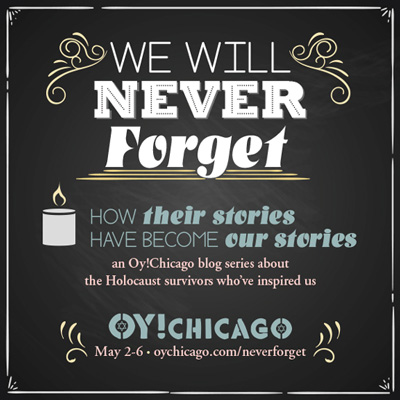
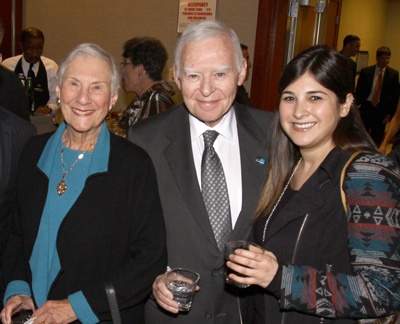
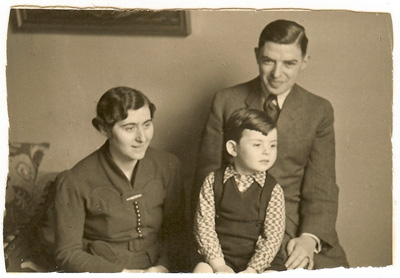
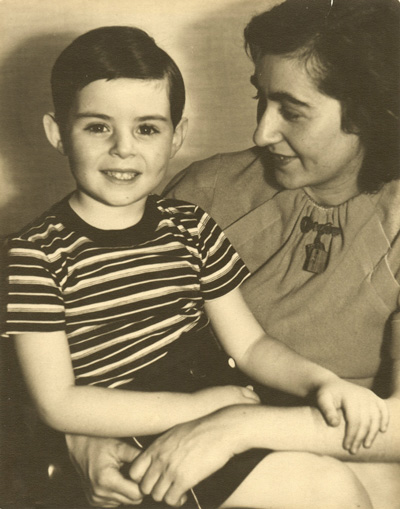
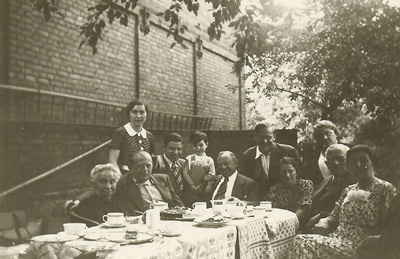
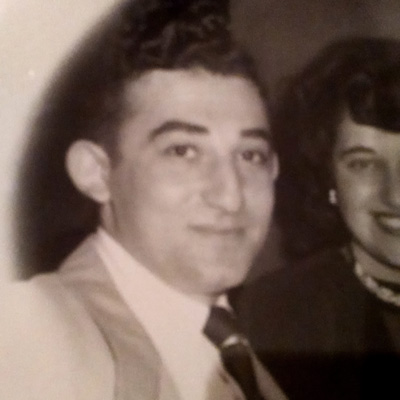
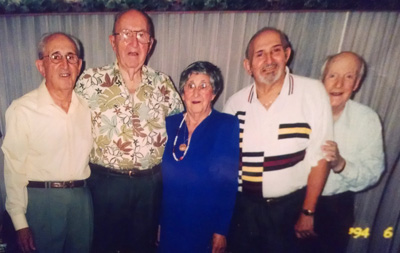
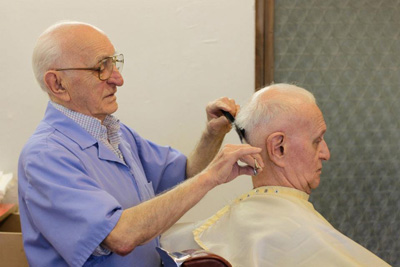
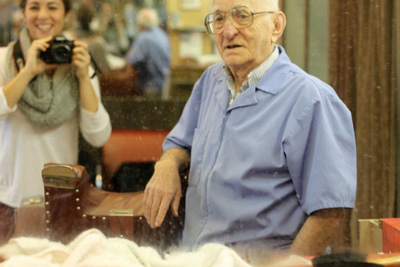
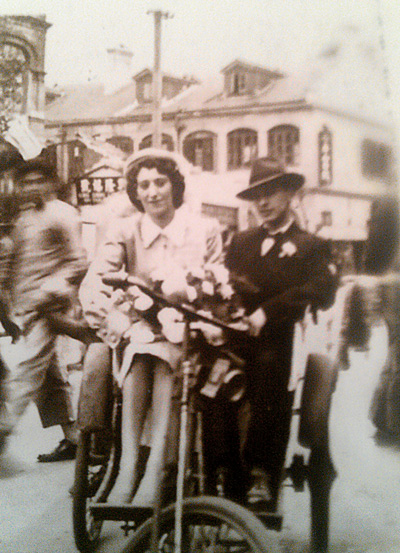
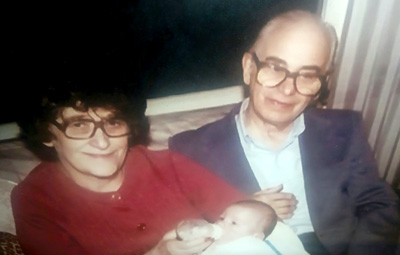
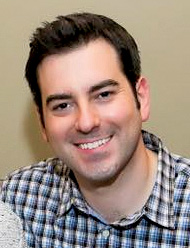
.jpg)
.jpg)


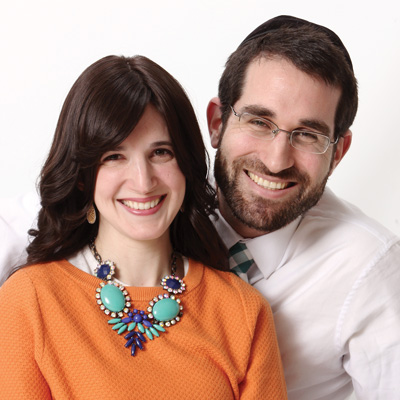
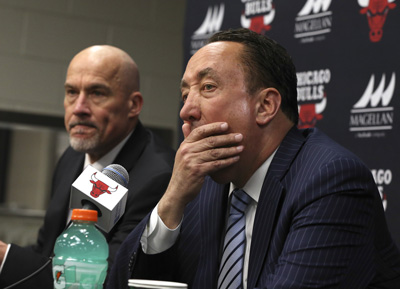




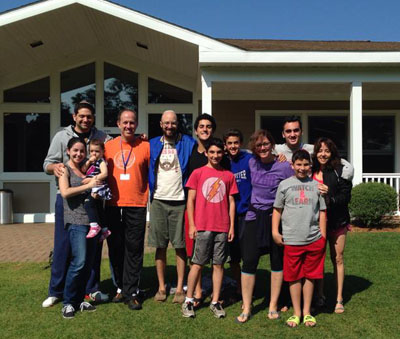
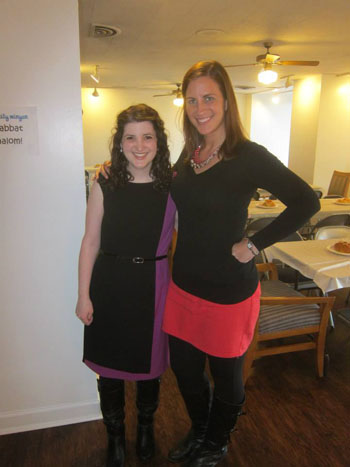
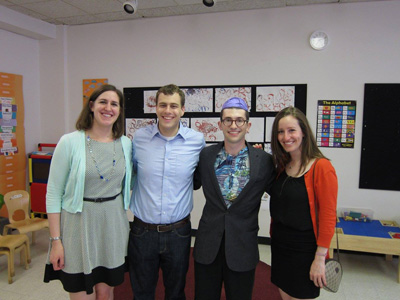
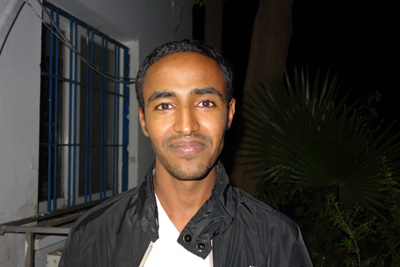
.jpg)
.jpg)




.jpg)


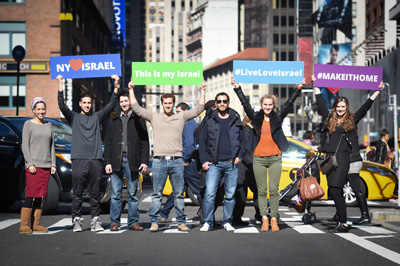
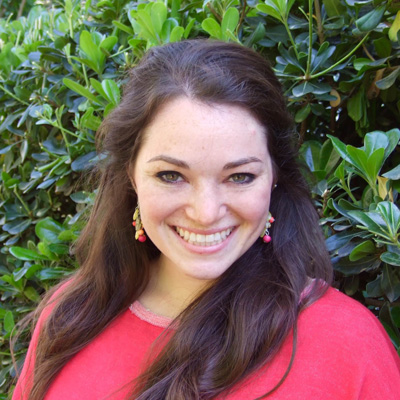

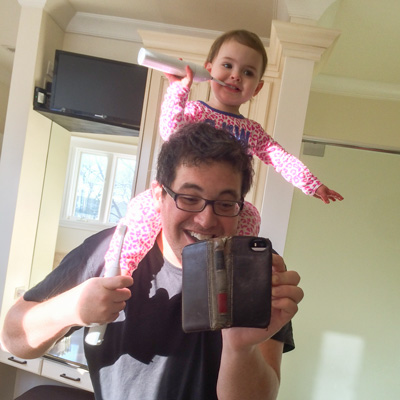


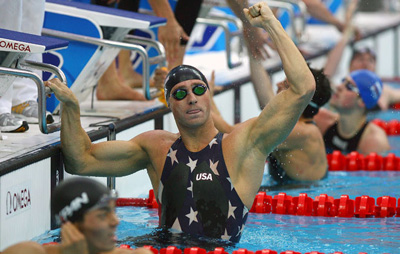

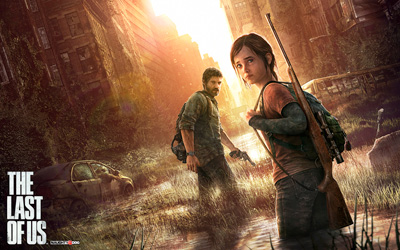

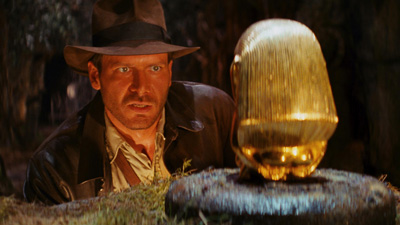




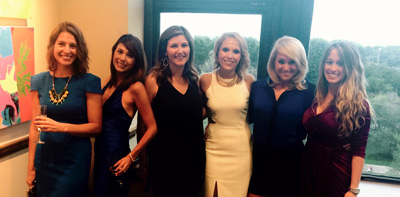
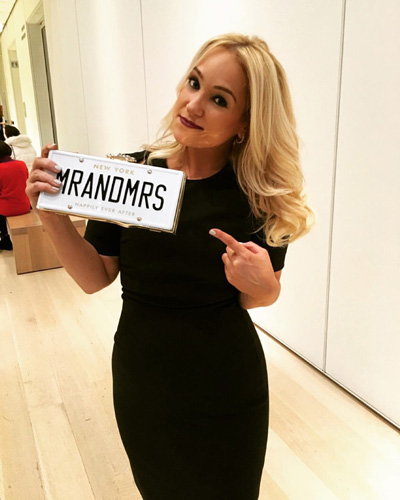
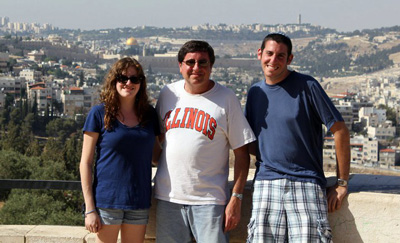

.jpg)

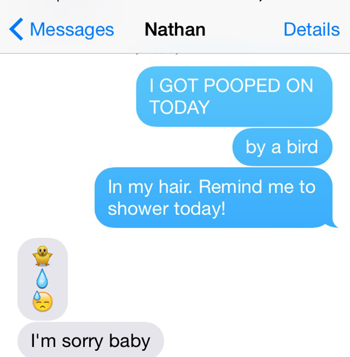
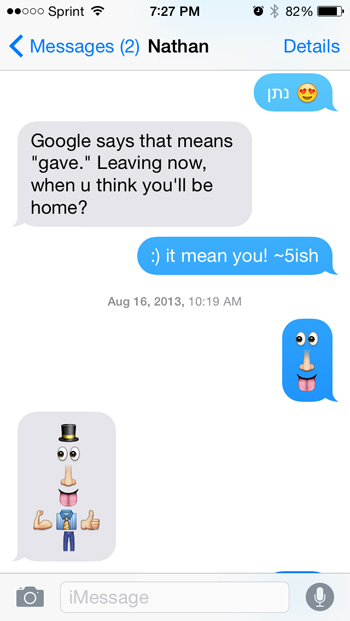
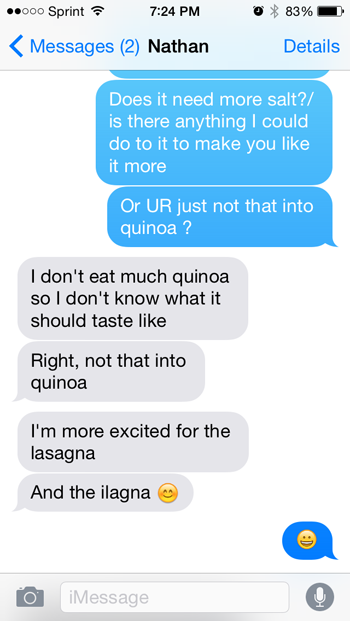
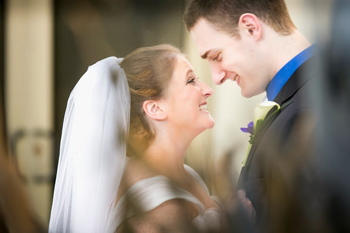
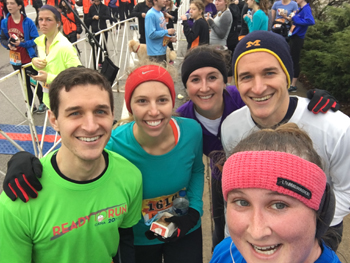

.jpg)
.jpg)
.jpg)
.jpg)
.jpg)
.jpg)




.jpg)
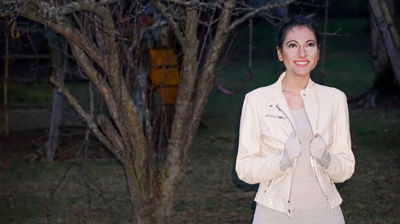

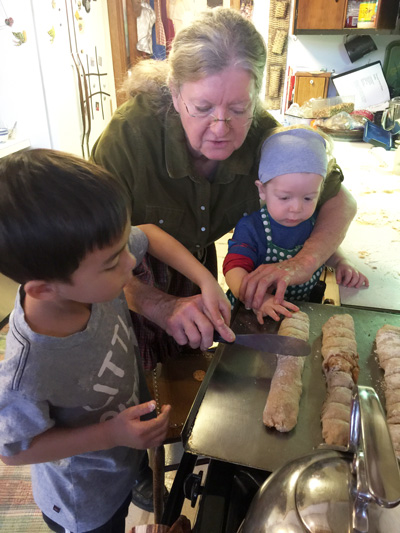
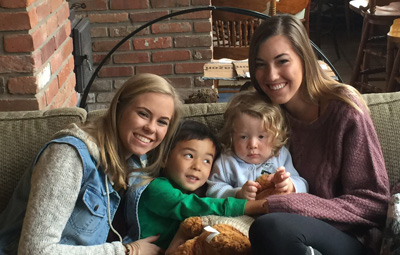
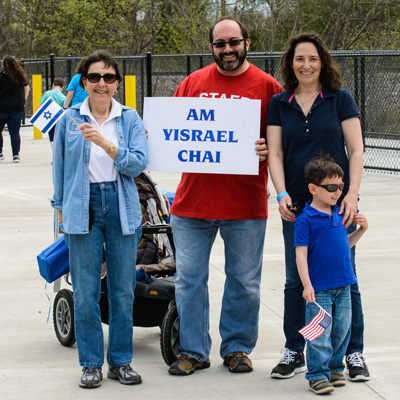


.jpg)



